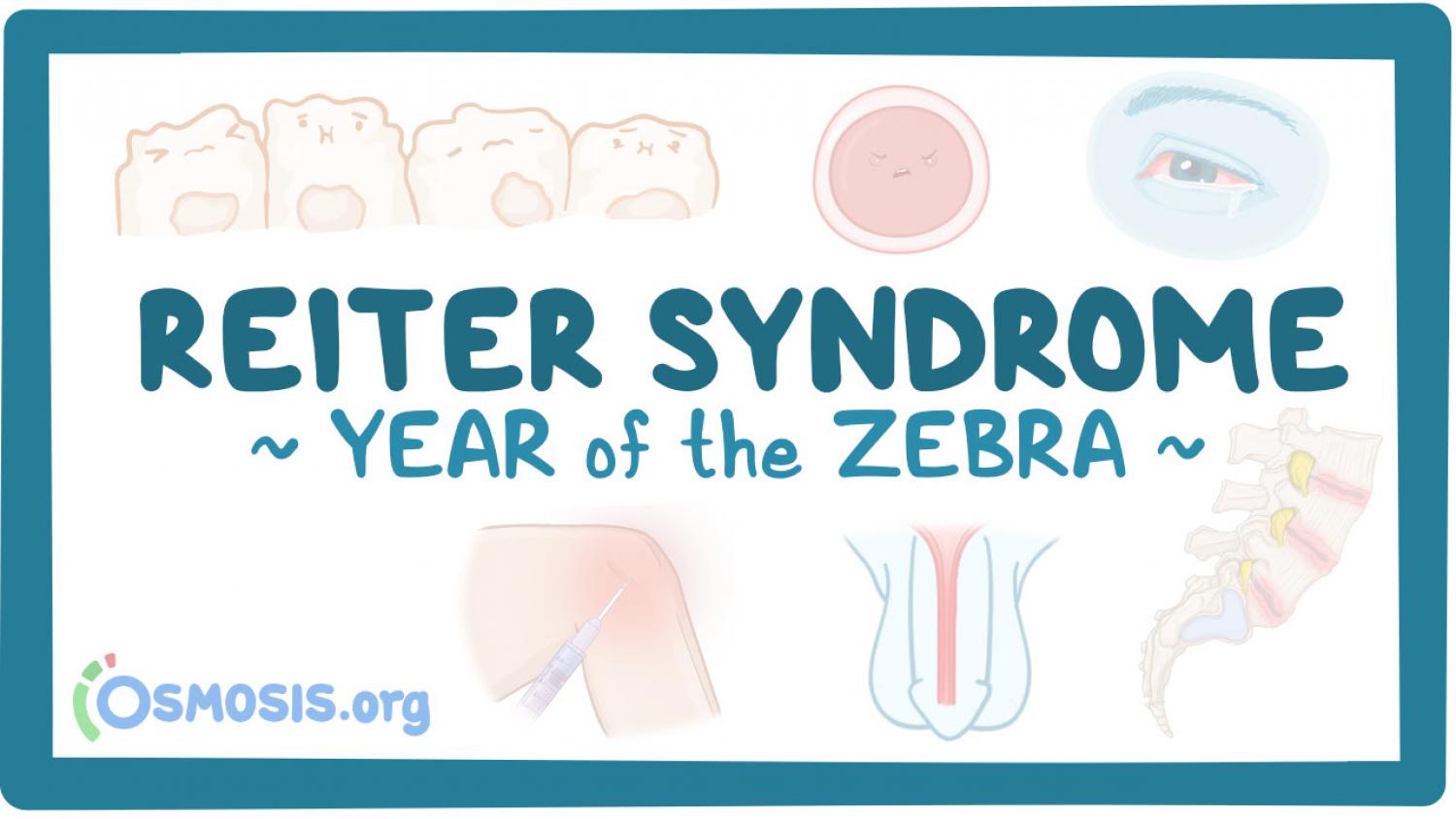
Rare Disease Education: Reiter Syndrome
Editor: Kelsey LaFayette, DNP, RN, FNP-C
"When you hear hoofbeats, think of horses, not zebras,” is a common saying in medical education that means you should think of common conditions first, instead of rare ones, in making a diagnosis. “Rare” is a relative term though and about 7,000 rare, or "zebra," conditions affect more than 350 million individuals worldwide. Although these conditions collectively affect an enormous number of people, each of these conditions individually is rare enough that it can be difficult to secure the resources to study them and to develop treatments and cures. Likewise, awareness of rare conditions may be low and health care professionals may not be familiar with their signs and symptoms making it more difficult to reach a correct diagnosis and provide effective treatments.
To increase knowledge about rare conditions, Osmosis and the National Organization for Rare Diseases (NORD) have collaborated on an initiative to bring education and awareness to the public. We are excited to be a part of this initiative because we believe everyone deserves quality health care, no matter how rare their condition.
Zebra of the Week: Reiter Syndrome
There is never a right time to get sick. In our day-to-day lives, we seldom take the time to appreciate our health, until things take a turn for the worse. A true relief comes with the resolution of a temporary ailment such as an infection, that our immune system deals with and we forget about. Yet, the way our immune system deals with that infection sometimes triggers this week’s Zebra, reactive arthritis.
Reactive arthritis, formerly known as Reiter syndrome, is a joint inflammation that occurs as a “reaction” to an infection and usually occurs in a different part of the body from the infection. It is characterized by swelling, warmth, and pain that typically affect the lower limb joints and the sacroiliac joints. This may be accompanied by urinary tract inflammation and conjunctivitis, or inflammation in a membrane of the eyes. Symptoms can last anywhere from 3 to 12 months and risk either returning later or becoming a chronic problem. Reactive arthritis usually affects men between the age of 20 and 40 and is known to be associated with a specific genetic marker called HLA-B27.
To learn more about the diagnosis and treatment of reactive arthritis, watch the dedicated Osmosis video on YouTube and Osmosis.org
Meet Nikki Bhatti
The different diseases reactive arthritis and rheumatoid arthritis affect people at a vastly different scale. If reactive arthritis is this week’s zebra, then rheumatoid arthritis could be considered a corresponding horse: similar in some ways but much more common. In any case, when arthritis is mentioned, the picture that comes to mind is not usually that of a young woman, and this is a societal perception that Nikki Bhatti has had to contend with since she was diagnosed in 2010. She calls her disease invisible, but it is still very real. After all this time, Nikki knows what raises her spirits when she finds herself comparing her limitations with those of her peers. She is strong and wants to help. Watch her tell others that they are not alone in their struggle.
Organization Taking Strides
For over seven decades, the Arthritis Foundation has been addressing the challenges of arthritis in all of its forms, through funding medical research, advocacy, and improving medical services for patients. Having been involved for so long means that they have had the chance to be at the forefront of crucial scientific research with grants and awards in the tens of millions for fruitful projects that will be added to the centralized resource library that they provide.
On the advocacy end, the foundation holds an advocacy summit, a powerful opportunity for attendees to meet with their representatives and share their arthritis story. This helps legislators better understand how they can help people affected by this disease.
Most importantly, the Arthritis Foundation makes sure to put patients first through their wellness events and connection groups, both in-person and remotely. There are mounds of informational resources that will answer questions and concerns. They host regular fundraisers such as the Walk to Cure Arthritis, galas, bicycle tours, and auto shows. The foundation has even launched a free chronic pain management app to help patients keep track and control their pain.
